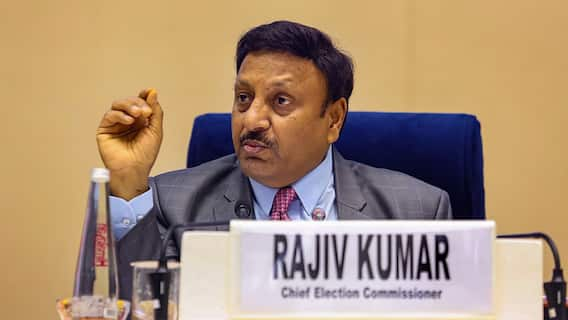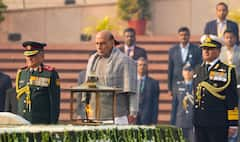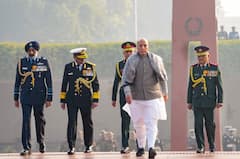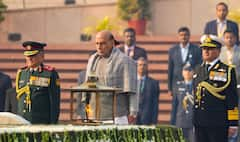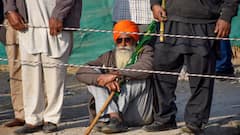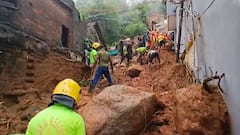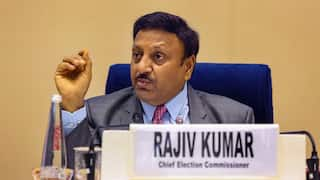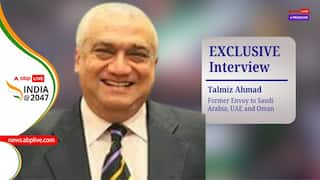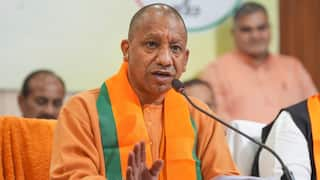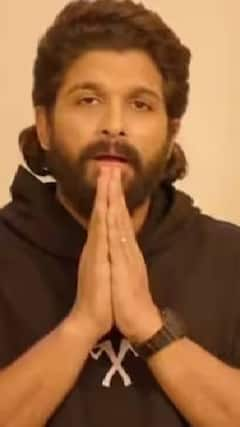Why Backing African Union’s G20 Membership Bid Is A Smart, Strategic Move By India
To benefit from resurgent African economy, widespread competition has emerged. Countries like China, India, Europe and the USA are engaged in a hurdle race to win over the African governments.

It is a paradox that a resurgent Africa, representing 54 member nations of the African Union and a powerful voice of over 1 billion people, doesn’t find a place on the high table of 20- member G20, an organisation of 20 rich and developing societies of the world. The present G20 architecture aimed at building a more resilient world economy is not accommodative of a major portion of the globe, without which the world can’t grow in an equitable fashion.
The African Union, which has been invited as a guest at the forthcoming New Delhi G20 summit to be hosted and presided over by India on September 9-10, has been appealing to the G20 members and its organisation to extend full membership to the Union as a fast developing economy. The continent rich in mineral resources needs guidance and support to revive its nascent economy. The G20 can play a stellar role in strengthening the structure of world economy and governance so as to empower its citizens to not get trapped by exploitative lending policies of powerful authoritarian regimes, in the name of promoting infrastructure growth.
If the developed countries are interested in enhancing the economic stability and strength of Africa, most of which remained colonised in the better part of the 19th and 20th centuries, the region must have to become a lucrative market for the powerful economies of the world to invest. Africa can become an attractive market for the developed world only when their purchasing power can vastly improve. It would thus be in the interest of developed economies for Africa to emerge economically stronger.
After being ignored by the G20 over the years, the request of the African Union to grant full membership, Indian Prime Minister Narendra Modi boosted the morale of the group by writing a letter to all G20 members to formally induct the 54-member African Union as a full member. It’s a smart move by India on the African chessboard. After all, if a 28-member European Union can be accommodated as a full-time member, why can’t the African Union be given the same status. Besides, some of its member countries like the UK, France, and Germany have openly supported the proposal. With India taking up the cause of the African Union, the group now feels even emboldened after getting a formal letter of support from PM Modi whereas 11 of the G20 members have only extended verbal support, a majority of them EU nations.
ALSO READ | With China Threat Growing, Philippines Keen On Procuring More Defence Items From India
Bold Step By India
Diplomatic sources describe PM Modi’s declaration of support as a bold step in enhancing Africa’s voice on the international stage and in shaping the future of a shared world. Modi has attracted the world’s attention by proposing to his G20 counterparts that the African Union be given full membership at the forthcoming G20 summit, as requested by them. Some member countries of G20, however, apprehend that Africa’s entry into the group would open a floodgate that would adversely impact on the group’s efficiency. Observers say that maintaining the status quo would negatively impact the relevance of the G20. PM Modi said: “This will be a right step towards a just fair, more inclusive and representative global architecture and governance.”
An Indian official said Modi is a strong believer in having a stronger voice of the global south countries on international platforms, particularly of the African countries. As part of the G20 presidency, he has particularly focused on incorporating the priorities of the African countries on the G20 agenda.
At present, G20 members comprise 60 percent of global geo-economy and if Africa is also included it would expand to 80 percent of the geo-economy. The Indian government has been making special efforts towards them by launching the Focus Africa programme way back in 2003. Only last May, the EXIM Bank of India organised an India-Africa conclave with the collaboration of the Confederation of Indian Industries. EXIM Bank has a special collaborative programme to improve their capacities to produce and export more and more to improve the health of their economy. The present GDP of the whole continent is more than $1 trillion — almost the geographical size of Europe, where the individual African countries can strongly emerge as a powerful voice. Indian GDP is almost three times bigger, which gives an opportunity to Indian and developed economies to deepen their trade and resist the unethical trade practices for economic takeover of the member nations.
Besides the economy, Africa has a special significance in the power corridors of the United Nations. And India has a special place in the hearts and minds of ordinary people of the continent, which India can take advantage of. India’s bilateral trade with Africa grew to $100 billion with 9.26 percent growth in 2022, whereas China’s bilateral trade with Africa rose to $272 billion. Thus, it is obvious that China’s economic footprint in Africa is far deeper than India. However, if Africa is included in G20, India can develop better understanding with the African partners to its advantage.
To benefit from the resurgent African economy, widespread competition has emerged. Countries like China, India, Europe and the USA are engaged in a hurdle race to win over the African governments. However, there is an attitudinal difference between China and India, in the manner they engage with countries. To empower and build capacities among Africans, India has been engaging with all African countries through its ITEC (Indian Technical and Economic Cooperation) programme, whereas China believes in lending huge sums to build infrastructure, and later in case of default Chinese diplomats indulge in pressuring them to accept Chinese dominance over them, just like old colonial empires.
The author is a senior journalist and strategic affairs analyst.
[Disclaimer: The opinions, beliefs, and views expressed by the various authors and forum participants on this website are personal.]
Trending News
Top Headlines








